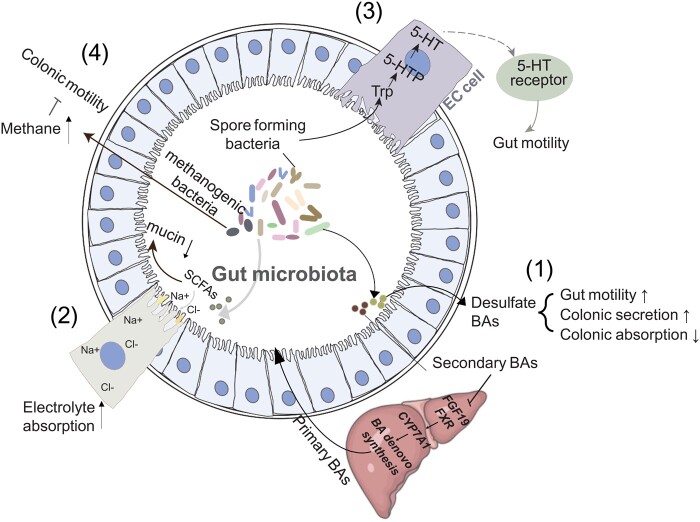Figure 2.
Potential molecular mechanisms for the gut microbiota that contribute to the pathogenesis of functional constipation (FC). (1) Bile acids (BAs) stimulate bowel movement and colonic secretion and suppress colonic absorption. The gut microbiota impacts these processes by regulating the BA levels, as well as the sulfation of BAs, which abolishes the effects of BAs on colonic transit. (2) Elevated levels of short-chain fatty acids (SCFAs), the major group of microbial fermentation products, stimulate electrolyte absorption and suppress mucin secretion, thus contributing to the pathogenesis of FC. The effect of SCFA on colonic motility is a controversial topic. (3) 5-hydroxytryptamine (5-HT) stimulates colonic motility. The gut microbiota regulates the level of 5-HT through several mechanisms and thereby affects the pathogenesis of FC. (4) Methane produced by the gut microbiota reduces bowel movement. 5-HTP, 5-hydroxytryptophan.

